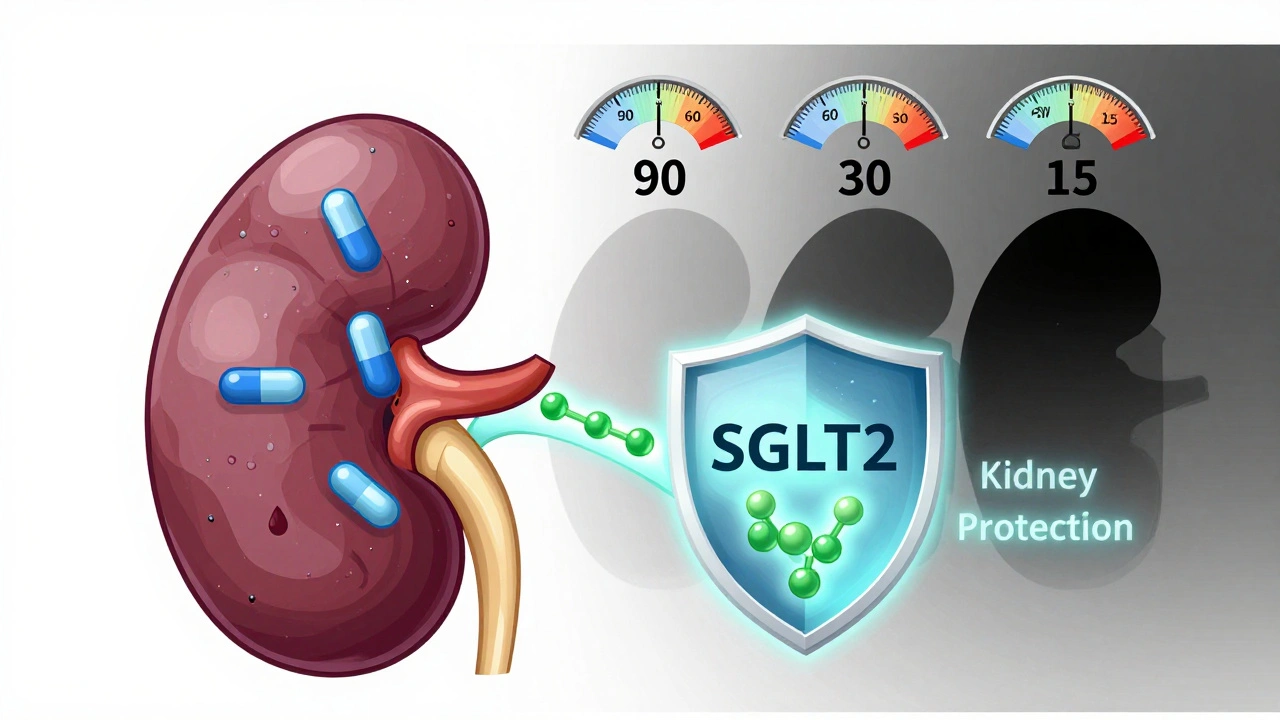Diabetes: Managing Blood Sugar Without a Prescription
Living with diabetes means keeping an eye on blood sugar every day. If you can’t take prescription metformin or just want a backup plan, there are a few over‑the‑counter (OTC) options that can help. In this guide we break down the most talked‑about ingredients, explain how they work, and give you simple steps to add them safely to your routine.
Why Look for Metformin Alternatives?
Metformin is a first‑line drug for type 2 diabetes because it improves insulin sensitivity and lowers glucose production in the liver. Some people can’t use it due to stomach issues, kidney concerns, or because they simply don’t have a prescription. That’s where natural, OTC compounds come in. They aren’t a cure, but they can support the same pathways metformin targets. The key is to pick ingredients backed by research and to use them correctly.
Top OTC Ingredients for Insulin Sensitivity
Berberine – This plant‑derived alkaloid shows results similar to metformin in several studies. It activates an enzyme called AMPK, which helps cells take up more glucose. A typical dose is 500 mg two to three times a day with meals. Start low, monitor your blood sugar, and talk to a pharmacist if you’re on other meds.
Inositol – Often sold as myo‑inositol, it works especially well for people with insulin resistance linked to polycystic ovary syndrome (PCOS). Doses ranging from 2 g to 4 g daily have helped lower fasting glucose. Mix the powder into juice or a smoothie to avoid stomach upset.
Cinnamon Extract – Not just a spice, cinnamon can improve how quickly the body clears glucose after a meal. Look for a standardized extract (around 500 mg) taken before eating. It’s a gentle option but should be combined with other strategies for best results.
Alpha‑Lipoic Acid (ALA) – This antioxidant boosts insulin signaling and reduces oxidative stress. A dose of 300 mg twice a day is common in research. It’s especially useful if you have nerve discomfort from diabetes.
All these supplements are available without a prescription, but they still interact with medications like blood thinners or other diabetes drugs. Always check with a healthcare professional before starting.
How to Use OTC Options Safely
1. Check the label – Choose products that list the exact amount of active ingredient and avoid proprietary blends that hide dosages.
2. Start slow – Begin with the lowest effective dose and track your blood sugar for a week before adjusting.
3. Pair with lifestyle moves – Supplements work best when you also eat balanced meals, move regularly, and get enough sleep.
4. Watch for side effects – Some people get mild stomach upset with berberine or a headache with ALA. If symptoms persist, stop and seek advice.
Remember, OTC alternatives are not a replacement for medical care. They’re tools you can add to a broader plan that includes diet, exercise, and regular check‑ups.
Quick Checklist for Diabetes Management
- Monitor blood glucose at least once daily.
- Choose one OTC ingredient to start (berberine is a popular pick).
- Take the supplement with meals to reduce stomach irritation.
- Log any changes in glucose, energy, or side effects.
- Schedule a quarterly visit with your doctor to review progress.
By understanding what’s out there and using it responsibly, you can keep blood sugar in check even when prescription options aren’t available. The goal is simple: stay steady, feel better, and keep moving forward with confidence.

Choosing a Sulfonylurea: Which One Has the Lowest Hypoglycemia Risk?
Posted by Desmond Carrington on 1/01/26
Not all sulfonylureas are the same when it comes to hypoglycemia risk. Glipizide is safer than glyburide, especially for older adults and those with kidney issues. Learn which drug is right for you and how to use it safely.

Renal Dosing for Metformin and SGLT2 Inhibitors: When to Adjust
Posted by Desmond Carrington on 5/12/25
Learn when and how to adjust metformin and SGLT2 inhibitor doses based on kidney function. Updated 2025 guidelines show how to protect your kidneys while managing diabetes safely.

Autonomic Neuropathy: Understanding Blood Pressure Drops and GI Symptoms
Posted by Desmond Carrington on 1/12/25
Autonomic neuropathy causes dangerous blood pressure drops and severe digestive problems, especially in people with long-term diabetes. Learn the symptoms, diagnosis, and real-world treatments that help patients stay upright and healthy.

Best Over-the-Counter Metformin Alternatives: Berberine, Inositol & More for Insulin Sensitivity
Posted by Desmond Carrington on 28/04/25
Metformin is a go-to prescription for supporting healthy blood sugar and boosting insulin sensitivity. But not everyone can use it, and many people are hunting for natural, over-the-counter options without the prescription hurdles. This article covers science-backed ingredients like berberine and inositol that could help with insulin sensitivity, plus practical tips on how to give OTC solutions their best shot. Get the lowdown on what really works, safety factors, and how these options stack up compared to metformin.

